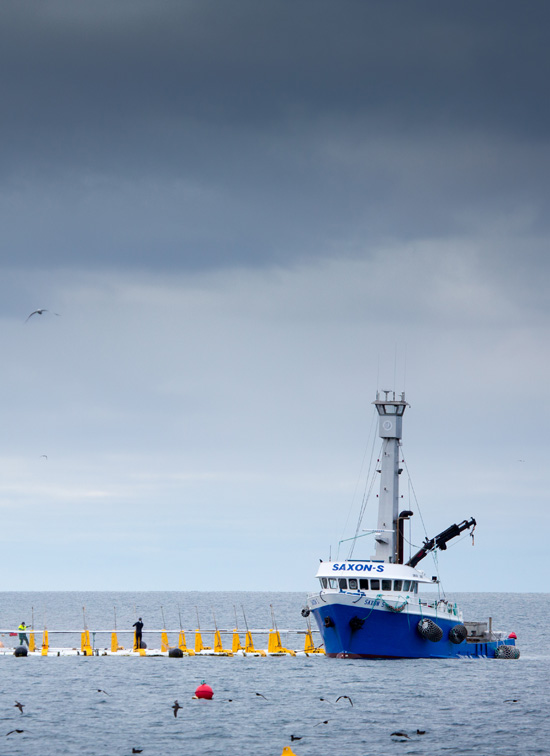Sustainability Commitment
Stehr Group are committed to the long term sustainability of Southern Bluefin Tuna. We take pride in responsible fishing and adhere to comprehensive Australian Legislation; ensuring the protection of the species for future generations. The success of our company depends on the health of our environment and the sustainable management of our fishery. As a progressive company, we are also committed to ensuring all divisions of our business operations are environmentally sustainable.
Southern Bluefin Tuna Management in Australia
The Australian Southern Bluefin fishery is closely monitored and regulated by the Australian Fisheries Management Authority (AFMA). The Commission for the Conservation of Southern Bluefin Tuna (CCSBT) is the international body managing all quota allocations around the world, ensuring that wild stock is fished at sustainable levels. In the last decade, the CCSBT has introduced mandatory Catch Documentation Schemes, enabling the traceability of Southern Bluefin Tuna and ensuring that fish caught outside of the quota system can not be sold.
An industry wide environmental monitoring program was initiated in 1996. Stehr Group participate in the SBT Environmental Monitoring Program (EMP) undertaken independently by scientists working for SARDI and PIRSA, Stehr Group has consistently received Level One Green EMP rating.
Friends of the Sea
Stehr Group has achieved an important milestone by being awarded the International Sustainability Certificate of the “Friends of the Sea,” a non-profit NGO which is the world’s largest certifier of seafood. A major strength of the certification is that it covers all parts of the Bluefin Chain of Custody. This includes the sustainability of the fishery, of the ecosystem (including any by-catch), of staff safety and labour conditions, carbon footprint of organisations, product testing and traceability, animal husbandry and welfare, vessel monitoring and waste management.
Adopt A Beach Program
Stehr Group participates in a beach clean-up initiative of the ASBTIA, maintaining a 13km stretch of coast line in the Port Lincoln National Park, four times per year, collecting any waste generated from aquaculture as well as domestic rubbish.

